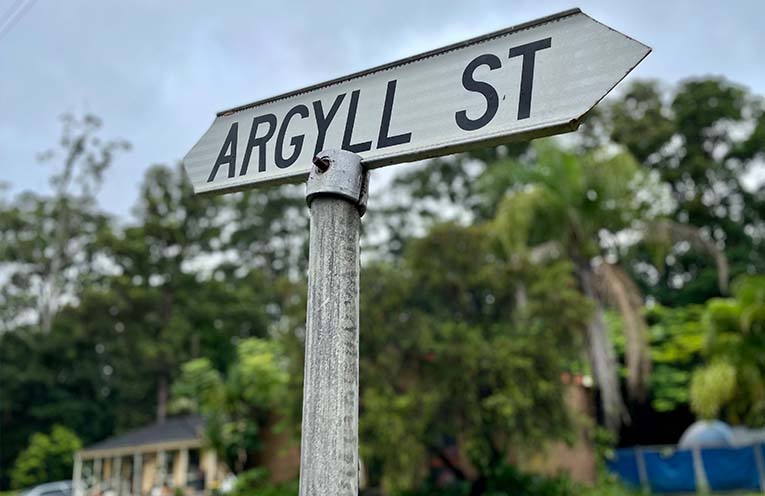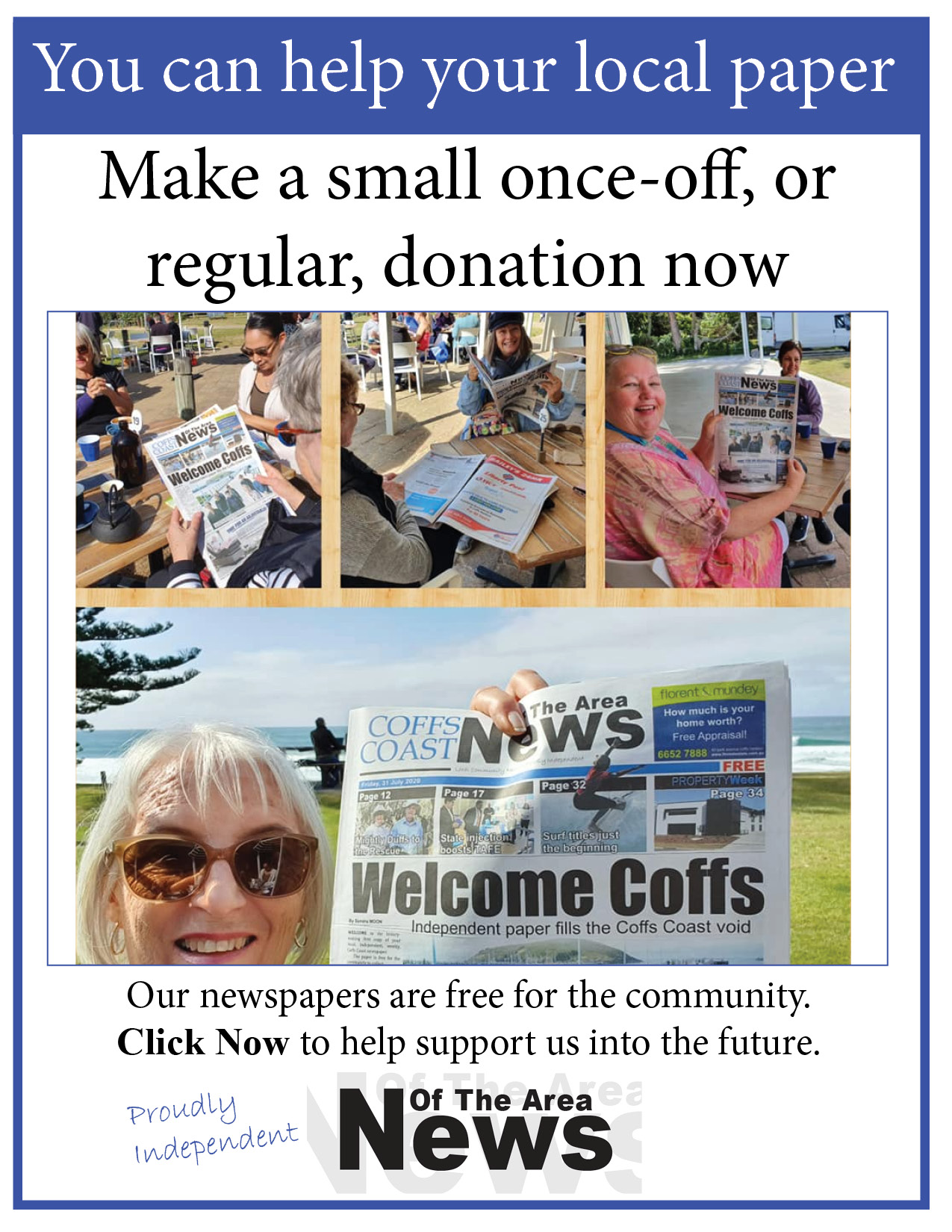
AFFORDABLE housing, for purchase or rental, is an issue on the Coffs Coast that is not going away any time soon.
Last week, Member for Coffs Harbour Gurmesh Singh released a statement criticising the State Government for “scrapping” the previous government’s Argyll Street redevelopment plans.
 Advertise with News of The Area today.
Advertise with News of The Area today.It’s worth it for your business.
Message us.
Phone us – (02) 4981 8882.
Email us – media@newsofthearea.com.au
Mr Singh said the redevelopment proposed by the previous government would have built an additional 322 private affordable homes, as well as 138 social dwellings, in a precinct that is close to schools, shops, and other amenities.
It would have also included homes suitable for people with a disability and older residents.
“What is particularly disappointing is that even after six months of Labor being in government, the Minister for Housing, Rose Jackson, still has no plans to improve housing on the Coffs Coast,” Mr Singh said, expressing frustration that Ms Jackson – who is also the Minister for Homelessness, Mental Health, Youth, Water and the North Coast – is yet to reveal whether the current Argyll Estate homes, some of which are 60 years old, will be renovated or rebuilt.
“I will write to the Premier, Chris Minns, to urge his intervention on Argyll Estate, on behalf of members of our community struggling to put a roof over their heads,” Mr Singh said.
“Also, I will continue to work with City of Coffs Harbour to ensure the Argyll Estate rezoning proceeds as planned.”
Ms Jackson said in a statement that the previous government had “botched” the Argyle Estate redevelopment.
“(The) proposal would have only delivered an additional nine social homes, which is simply not good enough for this site.
“Today we provide relief and certainty to residents who live in the Argyll Estate, meaning they will not need to relocate and move.
“With more than 800 people in Coffs Harbour currently in desperate need of social housing, it was clear that Argyll Estate was simply not going to make a dent in reducing the waitlist.”
The City of Coffs Harbour is also trying to do its bit to improve the housing situation, releasing a Draft Affordable Housing Strategy that identifies initiatives and actions the City can take to help increase the supply of affordable housing in the local government area.
The Strategy is out for public consultation until October 13, 2023.
The three main areas of focus are advocating to government for funding and delivery of more affordable housing, including social housing, facilitating and providing incentives for the development of smaller dwellings and affordable housing by the private sector through available planning controls and requiring that certain residential flat buildings provide contributions to affordable housing or include a proportion of the development as smaller dwellings.
Ian Fitzgibbon, City of Coffs Harbour’s Acting Director City Planning and Communities said, “This Strategy proposes initiatives to make the building of smaller, lower-cost housing by the private sector more attractive, as well as actions to encourage more funding and delivery of affordable housing by government and not-for-profit organisations.
“The role of councils is to influence housing supply through land use zoning, development controls, the timing of land release, location of services and facilities and the levying of development contributions and application fees.”
Mr Singh said while he agreed with some of the initiatives in the City’s Strategy, others need a “rethink”.
“The initiative to consider affordable housing impacts when assessing development applications will delay the growth of our city, as will the idea to slug potential homeowners with a fifteen percent tax as part of any new housing development.
“Making it easier to build homes in our region is an important goal, and I’ll continue to work collaboratively with the City to increase our supply of housing across the board – especially for those working hard to enter the property market.”
The City says that more than 5,000 households are in ‘housing stress’.
Factors contributing to an almost zero percent vacancy rate and dramatic rental increases include inadequate supply of long-term private rental accommodation amid increasing demand, incomes not rising in comparison with the rising cost of housing (rent and purchase), demand from itinerant workers in sectors like construction and service sectors such as health and aged care, the movement of people on higher incomes from cities to regions as a result of the COVID-19 pandemic and Coffs Harbour’s status as a first point of settlement for humanitarian refugees.
The Strategy points out that “social housing supply has failed to keep pace with growing need over many years, and has actually decreased over the past few decades through sale and non-replacement of dwellings lost and lack of funding for growth”.
“There is now a ten-plus year waiting time for most housing types and a wait of 12-18 months for priority applicants.”
At the same time as the City’s Strategy was released, a research paper from Per Capita’s Centre for Equitable Housing found that the high number of short-term rentals is exacerbating the rental crisis in key regional areas, including the Mid North Coast.
The report states that most properties listed on Airbnb in the Mid North Coast were not booked for the majority of the year, with 34.7 percent of properties (1,272) were booked for fewer than 30 nights.
Only 15.57 percent of properties were booked for more than 180 nights a year.
Most of these properties were booked for more than 255 days in the year, suggesting that a portion of the market is seeking to use properties as short-term rentals year-round.
$17.5 million in total annual revenue was made in the Coffs Harbor area from all Airbnb bookings in the last twelve months of data collection.
Housing advocates have long argued that the conversion of rental properties to Airbnb has adversely affected the local rental situation.
“Background research into housing in the City of Coffs Harbour LGA found that we have less than the average proportion of properties that are unoccupied or used for Short Term Rental Accommodation (STRA),” Mr Fitzgibbon said.
“We are continuing to monitor the use of dwellings in the LGA to determine whether STRA is having an adverse impact on our housing supply.”
The City of Coffs Harbour’s Draft Affordable Housing strategy can be viewed on the City’s ‘Have Your Say’ website and the Per Capita report can be accessed at https://percapita.org.au/blog/our_work/light-as-air-regulating-short-term-rentals-in-australia/
By Andrew VIVIAN

